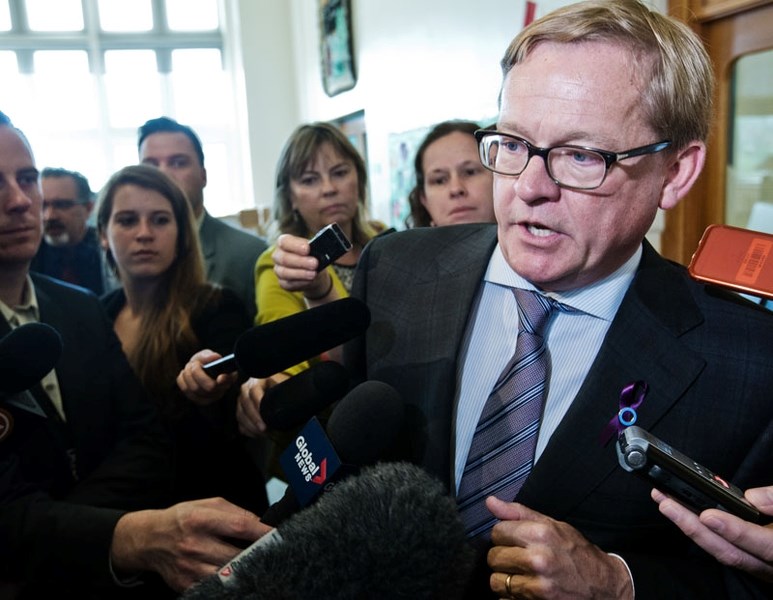St. Albert educators are full of ideas when it comes to how the province should rewrite its school curriculum over the next six years.
Alberta Education Minister David Eggen kicked off a six-year rewrite of the K-to-12 Arts, Language Arts, Math, Social Studies, Science, and Wellness curricula Wednesday. Those curricula set out what students learn in Alberta schools, and some are almost 30 years old.
"For too long we have seen our efforts to improve curriculum stop and start and stop and start," he said, adding that in some cases subjects were taken on in isolation.
This $64 million review will aim to give each course a common design to make it easier for teachers and students to make connections between them, Eggen said. It will also look to do a better job of covering topics such as climate change, computer coding, financial literacy, aboriginal culture, and lesbian, gay, trans, bisexual and queer issues.
"Now more than ever we need to learn about inclusion and teach about equality and teach about social justice," he said, referring to last week's shootings in an LGBTQ nightclub in Florida.
Albertans will get to have their say through an online survey and some 1,800 face-to-face talks starting this September, Eggen said. The province is also working in close collaboration with the Alberta Teachers' Association.
The current curriculum is "about a mile wide and an inch deep," said ATA president Mark Ramsankar, which forces teachers to touch on many topics without getting into any depth.
"We're way past due on this rewrite."
Many ideas
St. Albert educators were generally positive about the rewrite
Sharon Morin of the Michif Institute approved of the review's aim to educate students about aboriginal history. Right now, aboriginal people virtually vanish from school textbooks after a chapter or two, and many teachers still oppose teaching students about the residential schools.
"To have that continuity and to show the history, whether good or bad, to students, (and to show) we're always existed and we still exist I think is really important."
It was great to hear Eggen's pledge to include LGBTQ realities in the new curriculum, said Kristopher Wells, faculty director of the University of Alberta's Institute for Sexual Minority Studies and Services.
"It's 2016, and this is the world around us," he said, adding if we don't teach students about this diversity, we can't expect them to become responsible citizens.
He called for a new sexual health curriculum that was based on scientific evidence rather than any moral or faith perspective and that would engage parents to have them deliver those ethical elements.
Paul Kane math department head Dawn Rothwell said some math teachers were wary of this review, as they had just gotten used to teaching the current math curriculum (the K-to-9 portion of which was revised in 2014).
"I actually really like the current curriculum," she said, noting that it lets teachers get into the why and how of math in more detail.
Still, she said she was definitely interested in seeing more crossover between different subjects, and approved of the review's plans to study better ways to test and evaluate students.
Leo Nickerson phys-ed educator Glenn Wilson said the current phys-ed curriculum was actually pretty effective despite being 16 years old. However, it also demands highly skilled educators to properly implement it – educators many schools don't have.
Wilson hoped the review would lead to a guide of best practices to help teachers instruct students using a skills approach – i.e. instead of teaching a kid soccer, you teach them running, kicking, and passing.
He also wanted a new assessment model that emphasized improvement rather than ability, as the latter unfairly advantages kids who start out athletic.
Kids shouldn't get a D because they come last in the Terry Fox Run, he said as an example.
"When I did the data on that one, Terry Fox would have failed the phys-ed program," he said, as his average speed was less than that of an 8th-grader.
Wilson said he saw many cross-curricular opportunities when it came to phys-ed. Students could use geometry to find geocaches, for example, or construct a story using words they find while orienteering.
The curriculum rewrite should be done for grades K-to-4 by 2018, with 5-to-8 done by 2019 and high school by 2022, the province reports. Each would take about a year and a half to roll out.




